Introduction to Dysbiosis!
Dysbiosis is a fairly new concept related to gut health that is showing up more in more in both research and mainstream media. Read on to learn about what dysbiosis is, potential causes, associated health conditions and a review of treatment options.
For patients with suspected dysbiosis, I prefer to work with them on implementing a plant-focused, high fiber diet diet containing prebiotics and fermented foods with targeted probiotic therapy based on their specific health conditions.
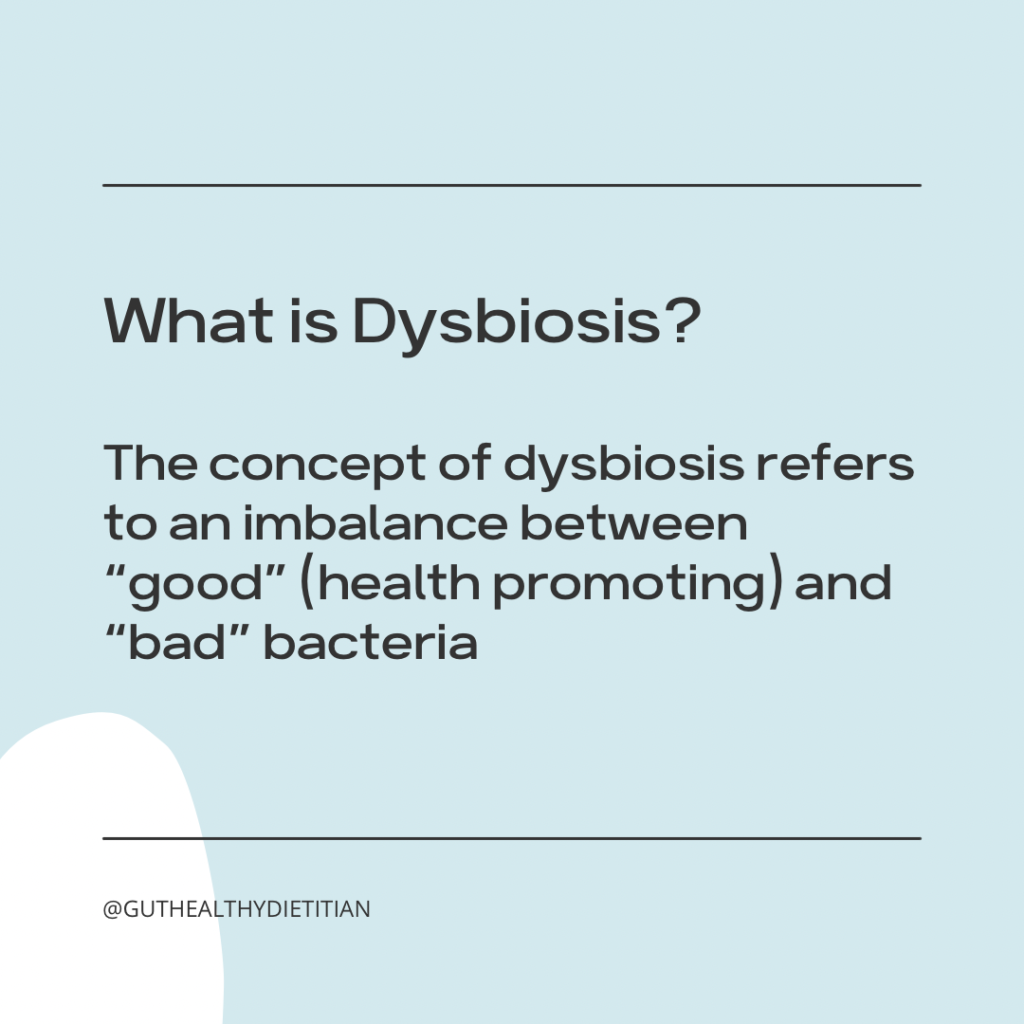
What is Dysbiosis?
- The concept of dysbiosis refers to an imbalance between “good” (health-promoting) gut bacteria and “bad” bacteria
What causes dysbiosis?
Dysbiosis has been associated with numerous potential causes including poor diet, alcohol abuse, stress, gastrointestinal infections, antibiotic use and mold exposure
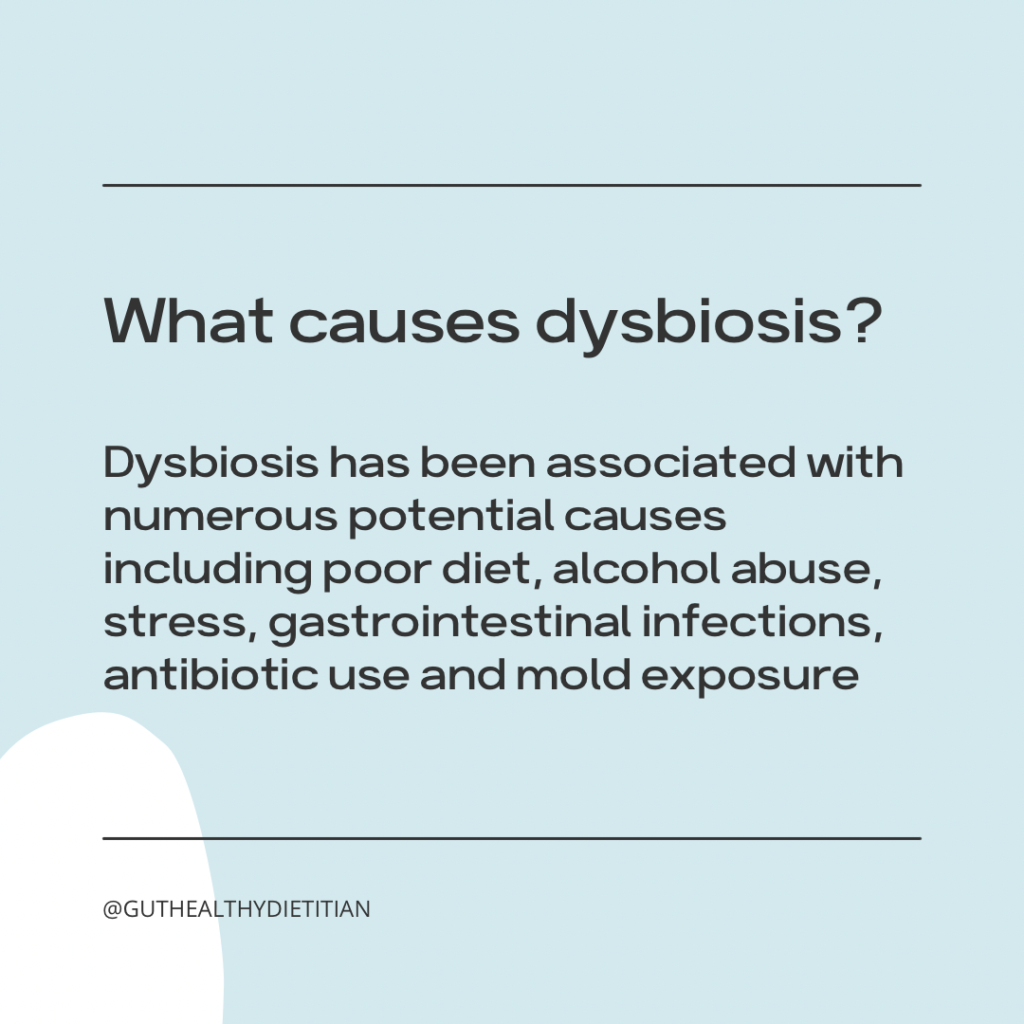
Negative Impacts of Dysbiosis:
An imbalance in gut bacteria can be associated with increased prevalence of certain health conditions, including:
- Small Intestinal Bacteria Overgrowth (SIBO)
- Inflammatory Bowel Disease (IBD)
- Irritable bowel syndrome (IBS)
- Clostridioides difficile (C. diff)
- Leaky gut
- Obesity
- Candida (a type of yeast infection)
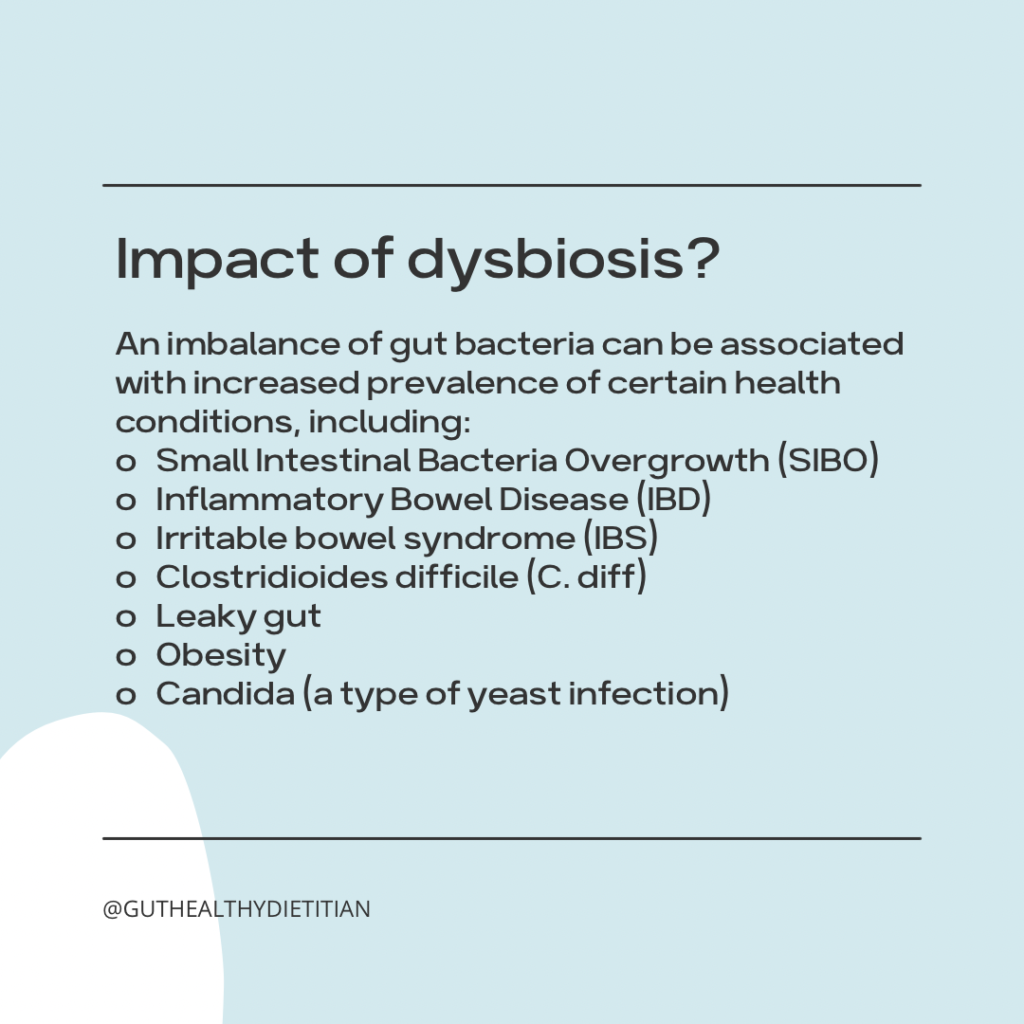
What dietary patterns are associated with dysbiosis?
- Intake of a high fat diet, particularly high saturated fat diet, has been associated with dysbiosis and increased inflammation.
- Diets high in simple sugars and carbohydrates may contribute to dysbiosis.
- High protein, low carbohydrate diets may contribute to dysbiosis.
- Excessive energy (calorie) intake can also increase inflammation and gut permeability (“leaky gut”).
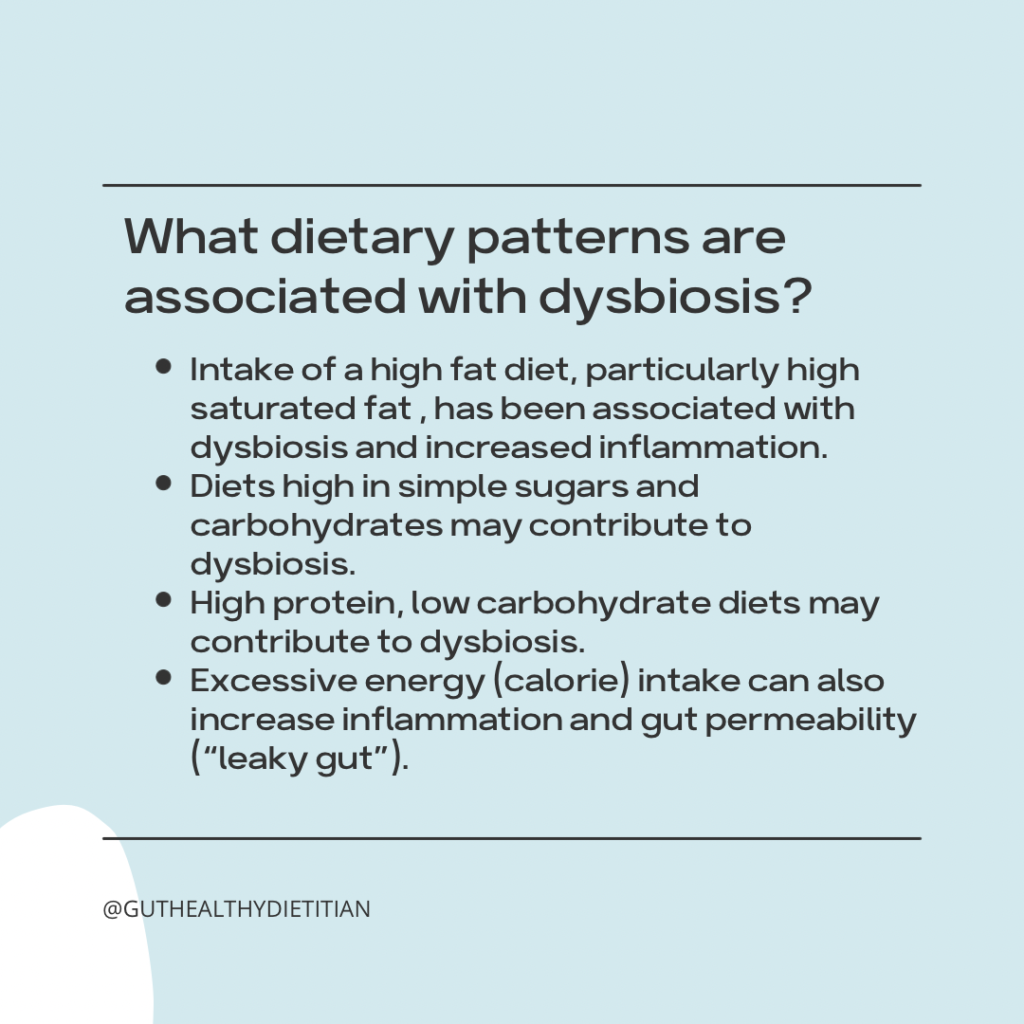
What is “leaky gut”?
Leaky gut refers to a condition where the tightly regulated permeability and integrity of the gut lining is disrupted, meaning substances can “leak” through the gut wall. Leaky gut is associated with inflammation and obesity.
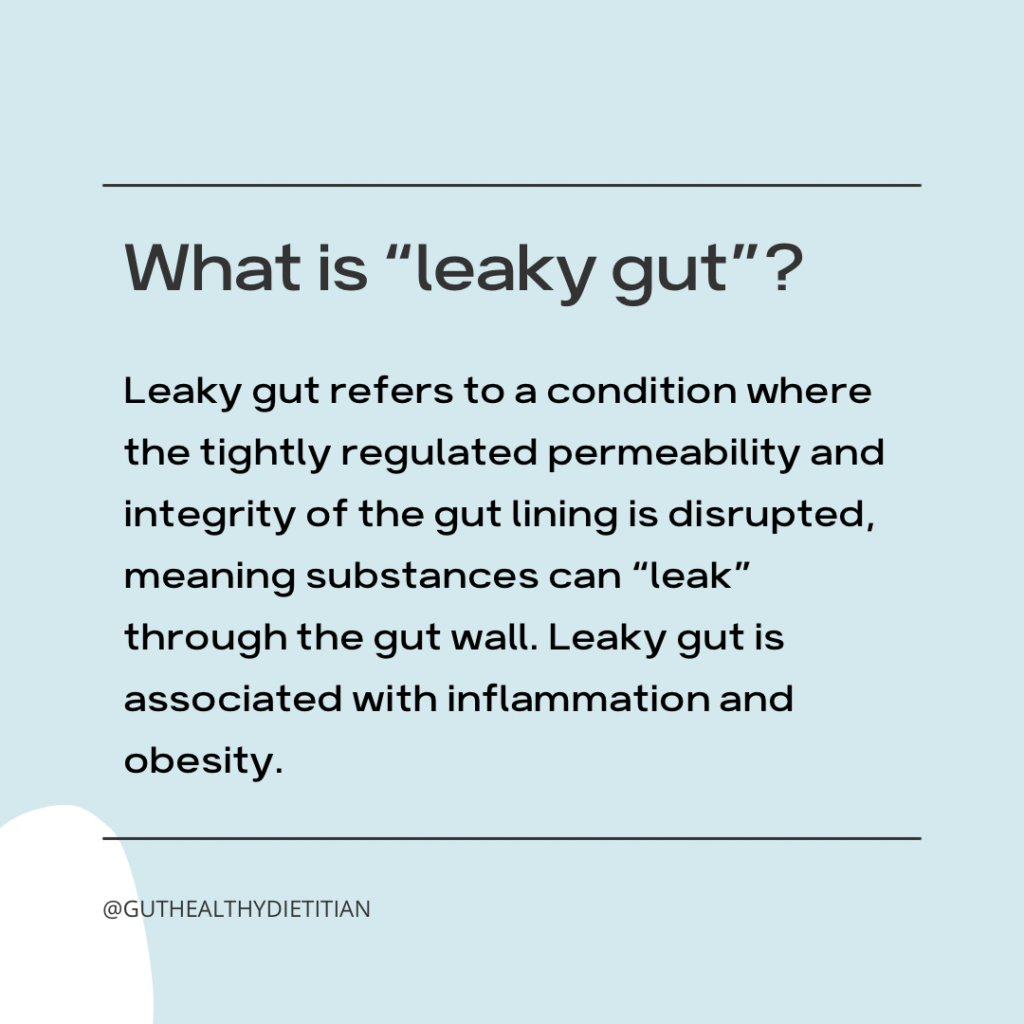



Leave a Reply